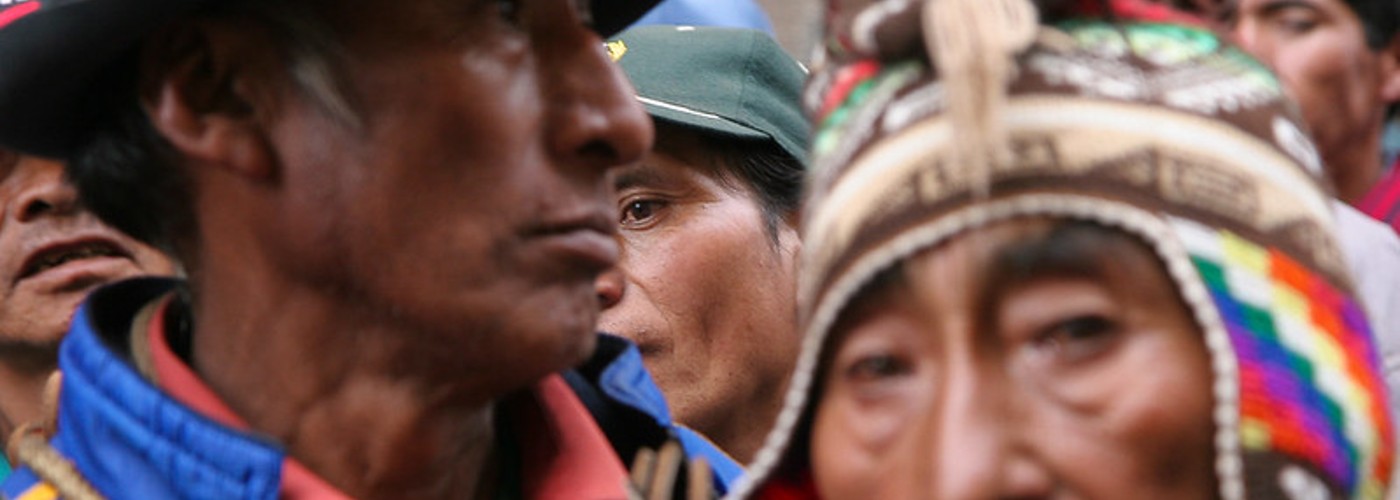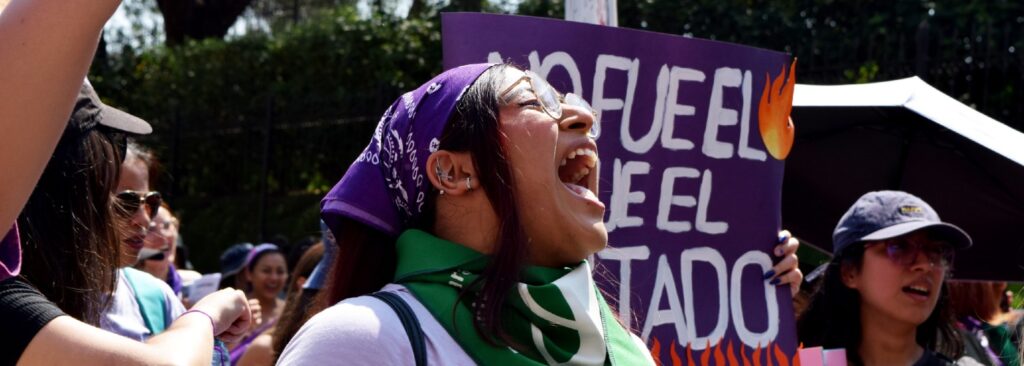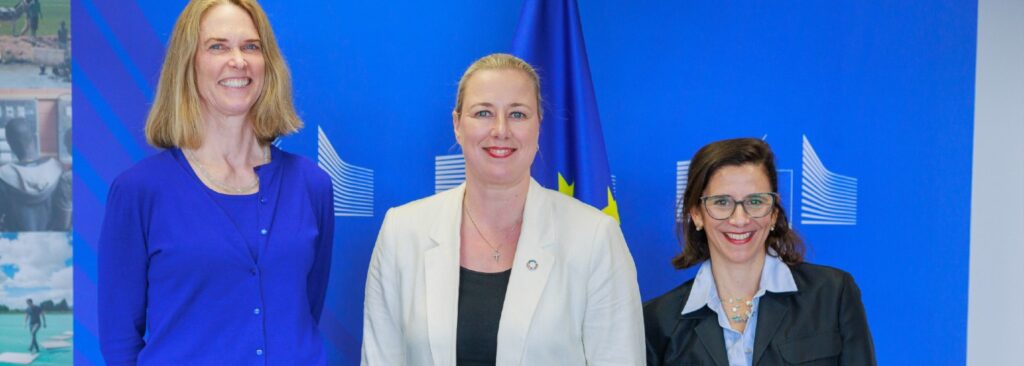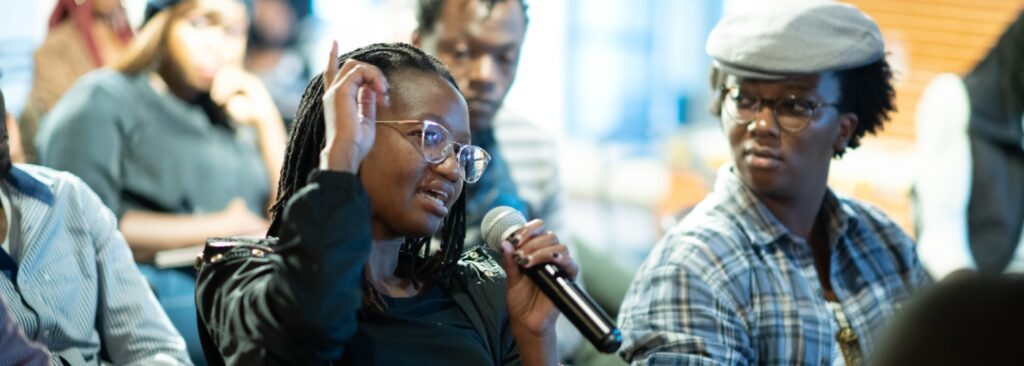This blog was written by Clarisse Sih and Bibbi Abruzzini from Forus, a global consortium partner in the EU SEE program, and originally published here.
Civil society organizations (CSOs) around the world are at a breaking point. The pace and intensity of restrictions on their environment are accelerating – from the criminalization of peaceful protest to legal systems used to silence dissent. Since its launch in January 2025, the EU System for an Enabling Environment for Civil Society (EU SEE) has monitored and documented this global trend through its Early Warning and Monitoring Mechanism.
Rooted in six interdependent principles, from the protection of fundamental freedoms to access to financial resources, the EU SEE methodology helps capture not just isolated events but the broader architecture that influences and shapes the environment in which civil society operates. And it is this very architecture that is under threat.
The bigger picture: restrictions on activists and civil society
Across the globe, activists and civil society organizations are targets of legal, political, and judicial tools to restrict their work. From sedition charges in Hong Kong to arbitrary detention in Sierra Leone, and the legal charges against environmental defenders in Bolivia, recent alerts gathered by EU SEE illustrate a growing trend of criminalizing dissent, limiting free expression, and silencing those who challenge the status quo. You can find the full list of alerts here.
“Protecting fundamental freedoms is just the beginning – civil society also needs legal support, funding, recognition, and safe spaces to thrive. Without an enabling environment, we don’t just silence voices, we weaken democracy itself. Now is the time for governments, donors, and citizens to move beyond concern and take action,”
Elisa Lopez, Project Coordinator for Enabling Environment at Forus
When governments impose legal penalties for criticism, restrict public assembly, or create barriers to information, they effectively dismantle the accountability mechanisms that civil society organizations provide. This chilling effect not only discourages citizens from participating in public discourse but also prevents the identification of corruption, human rights abuses, and policy failures. Without an enabling environment for civil society to operate, civil society actors cannot leverage their full potential to drive social innovation, foster community engagement, or advocate for marginalized populations. The resulting constraints prevent civil society from effectively channelling citizen concerns to policymakers and holding institutions accountable, thereby weakening the foundational participatory processes that sustain democratic governance and responsive policymaking.
“Funding cuts are forcing civil society into survival mode, leading to suspended projects, layoffs, and eroded trust with communities. This trend highlights the urgent need for predictable resources to sustain the work of civil society,”
Mandeep Tiwana, Co-Secretary General at CIVICUS
From Hong Kong to El Salvador, recent alerts gathered by EU SEE confirm that the crackdown on civil society is both intensifying and evolving. The March 2025 ruling by Hong Kong’s Court of Final Appeal against pro-democracy activist Tam Tak-chi set a chilling precedent: sedition charges no longer require proof of intent to incite violence. This ruling opens the floodgates for punishing peaceful protest as a crime against the state, directly violating the principle of respect and protection of fundamental freedoms and reinforcing a legal framework designed to discourage dissent.
In El Salvador, mass detentions of community leaders resisting eviction, many linked to a longstanding land rights struggle, have been compounded by the arrest and harassment of human rights defenders and NGO representatives. These actions mirror a growing pattern of criminalising civil society actors under supportive legal frameworks that are often used as a pretext to silence critics of the government
Meanwhile in Indonesia, the rushed revision of the Armed Forces Law expands military authority into civilian governance, a regression that recalls authoritarian eras. It signals not only a rollback of state openness but also a militarization of the public sphere, which endangers any form of independent civic participation.
In Bolivia, Park ranger Marcos Uzquiano was dismissed from his duties by the National Service of Protected Areas (Sernap) and an administrative process was initiated against him for his environmental work as president of the Bolivian Association of Park Rangers and Conservation Agents (Abolac), an organization that brings together all the agents that protect Bolivia’s protected areas. The case of Uzquiano highlights the use of the judicial apparatus as a tool to delegitimize and silence activists, especially in the environmental field, and underlines the structural deficiencies in the protection of human rights defenders in Bolivia. This broader context of criminalization and lack of institutional protection creates a climate of uncertainty and intimidation, limiting the ability of defenders to act freely on behalf of their communities and the environment.
When laws become tools of intimidation
The use of the legal system to burden or bankrupt activists is also on the rise. In Hong Kong, a court decision requiring activist Ma Chun-man to pay punitive legal costs highlights how judicial procedures are increasingly weaponized against those who challenge authority.
In Sierra Leone, authorities released Hawa Hunt, a social media influencer, after nearly three months of arbitrary detention for criticizing President Bio and First Lady Fatima Bio. Hawa Hunt was released after international media, rights groups, and local CSOs, including her legal representatives, pressured authorities. Yet Hunt was not acquitted, and laws like the Cyber Security and Crime Act, 2021, and the Public Order Act, 1965, remain tools for targeting government critics.
In Pakistan, the government’s retaliation against the civil society group Pattan for exposing electoral fraud, by sealing its offices and the home of its National Coordinator, demonstrates how government watchdogs are being punished rather than protected.
In Myanmar the military regime has blacklisted and withheld the degree certificates of approximately 800 doctors who were set to receive certification in 2025, preventing them from practicing. This has been a growing trend targeting healthcare workers associated with the Civil Disobedience Movement (CDM), a peaceful protest led by civil servants against the military coup that brought the regime to power.
“It is certain that many groups/organizations have had all of their funding cut as many humanitarian groups relied exclusively on US funding and this is causing huge shortages and closure of projects providing medical and subsistence support to the most vulnerable communities inside the country and along the border,”
an EU SEE Network Member in Myanmar
These developments threaten not only individual freedoms but the very infrastructure of civic action, violating multiple EU SEE principles, from freedom of association and expression to accessible and sustainable resources.
On the positive side
The EU SEE initiative also monitors opportunities and positive trends in the enabling environment for civil society. Here we look at the legal rulings, narrative turns and wins that are shaping the landscape for civil society and human rights defenders, offering them opportunities.
Despite the threats, the alerts also capture moments of civic courage. Peaceful protests in Paraguay gathered thousands calling for transparency and justice. Leading up to the protests, human rights groups reaffirmed freedom of expression. Despite some reports of intimidation, demonstrations proceeded peacefully. In Sierra Leone, international pressure helped secure the release of government critic Hawa Hunt, though the charges were not dropped and the risk of re-arrest remains. In Uganda, a Supreme Court ruling halted the prosecution of civilians in military courts, a win for democratic safeguards. In Peru, environmental defender Sergio Huamaní was acquitted of defamation charges filed by a mining company, setting an important legal precedent for the protection of freedom of expression. The court’s ruling, which overturned his earlier conviction, reinforces the ability of social leaders to speak out against corporate practices and corruption without fear of legal retaliation.
The enabling environment of civil society is still being defended, often at great cost, and it must be matched by international solidarity and systemic support.
What needs to happen now
The alerts documented through EU SEE are not isolated events. They are the early warning signs of a global crisis for civil society’s enabling environment; one that demands urgent, strategic response. Governments and donors must treat civil society not as a transactional partner, but as an essential actor for peace, justice, and development.
That starts with decisive political leadership. Legal systems must be reformed to protect – not penalize – activism. Judicial harassment, the criminalization of protest, and the misuse of security laws to silence dissent must be condemned and reversed. Governments must reaffirm their commitment to the rights of association, expression, and participation, and bring national legislation in line with international human rights standards.
Donors, for their part, must respond to this global rollback with reinforced and long-term support. This means funding not only projects but institutions supporting civil society’s resilience, not just its activities. Emergency funding mechanisms, legal defense support, and investments in protection and advocacy strategies are more urgent than ever. And when states close their doors to civic actors, donors must keep theirs open.
Above all, this is a time for visibility. Governments and donors must amplify, not sideline, the voices of those defending democracy and rights on the frontlines. Standing with civil society means rejecting silence, using every platform to expose repression and defending the principle that change begins with civic courage. As we’ve seen, the landscape for civil society is constantly evolving, with both challenges and opportunities shaping its future. While restrictions and pressures persist, legal victories, shifting narratives, and growing international attention offer hope and potential for positive change. Staying informed and engaged is crucial as these developments unfold.




